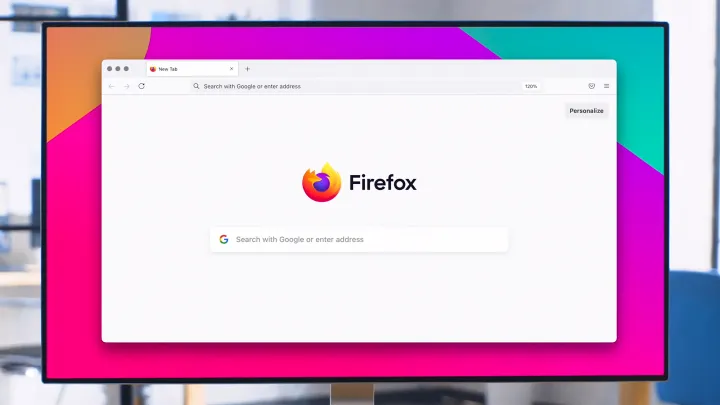Firefox just turned 100 (or at least, released its 100th version), which feels like quite the accomplishment. And yet, it still lags far behind the likes of Google Chrome in the tussle for the best web browser crown. But unlike the 70% of people who pledge allegiance to the Chrome behemoth, I commit myself squarely to Firefox — and have done so for the past 15 years. But why?
After all, to many people, Firefox has stagnated. It’s niche, it’s a curiosity, it’s a relic. Why bother using it? As it turns out, there are many reasons. As it marks its centenary, browsers like Firefox are more important than ever.
The Big Tech antithesis

According to a report from StatCounter, Firefox currently accounts for 7.68% of global web browser users. That’s below Safari’s 9.61%, Edge’s 10.07%, and Chrome’s all-conquering 66.64%.
Yet Firefox’s rivals have many advantages that they use to game the system. Chrome is advertised on Google search pages. Windows nags you to use Edge (and often opens it even when it’s not the default browser). Safari is the only browser preinstalled on Macs from the get-go.
Firefox has none of these things working in its favor. It’s a browser that doesn’t have the backing of an enormous corporation with deep, overflowing pockets. It’s the antithesis of Big Tech. It’s an underdog, and I like rooting for the dark horse.
But my support is about more than just cheering on the small fry. Before Google Chrome, Firefox was the main alternative to Internet Explorer, and it was so much better it wasn’t even close.
Firefox was the first browser to introduce tabs, which have become so ubiquitous we can’t imagine life without them. It was the first browser I encountered with a teeming, thriving extensions store. And it is a strongly pro-privacy browser, with a range of tracker-busting features that ensure my data remains my own.
When I first stumbled upon it 15 years ago, it ticked a lot of boxes for me. A decade and a half later, those strengths still hold up.
Pushed away by Google

Despite all that, I was also an early evangelist for Google services. I was a quick adopter of Gmail and Google Talk (remember that?). Back then, it felt like Google was a colorful upstart doing fun and interesting things. I was charmed by Google Doodles and excited by Google Labs.
But over time, the picture started to change. Google got a reputation for abusing user privacy and harvesting increasing amounts of personal data that’s still felt today. To make things worse, it’s seemingly incentivized to collect this data in order to feed its advertising business, which makes up the bulk of its income.
Besides the company’s questionable practices, the Chrome browser itself has pushed me away due to a series of small annoyances, the most egregious of which is the tab situation. I tend to be deeply disorganized in my browser, and Chrome is just not good for a tab junkie like myself. Got 400 tabs open? Firefox just scrolls through them. Chrome, on the other hand, makes them smaller and smaller until they’re approximately the size of a single neutrino and my mouse feels like a giant’s thumb, clumsily prodding all over the place.
Yes, there are tab groups — but that requires a lot of management compared to Firefox’s intuitive solution. And don’t even get me started with Chrome’s tendency to hog memory.
Combined with the “pull” factor of Firefox’s strengths, those “pushes” have kept me away from Chrome.
Why I’m staying put

“But Alex,” I hear you ask, “if it’s all about privacy, why not just use a browser like Brave or DuckDuckGo?” Well, 100 updates down the road, there’s another reason I stick with Firefox: Inertia.
Moving to something else means I would have to transfer all my bookmarks, extensions, and logins to a new browser. I have strong muscle memory for how Firefox works that would need to be relearned. After all, I’ve been using it for more than 15 years. In internet time, I’m an old dog. Good luck teaching me new tricks.
Firefox does exactly what I need — it scratched the itch many years ago and now I’m settled. It’s customizable, it’s private, and while it may not be the fastest, it’s just fine for me. I’m quite happy being on the outside looking in at the Chrome house party, where the host is slyly spying on all the guests.
Here’s to another 100 versions of Firefox.
Editors' Recommendations
- 5 web browsers you should use instead of Google Chrome or Edge
- I write about tech for a living — these are the browser extensions I install on every PC
- I tried the trendy new Arc browser — and this one feature blew my mind
- Microsoft Edge’s new Performance Mode could make it a more powerful web browser
- Microsoft Edge’s new Kids Mode is the must-have feature it’s been missing



